
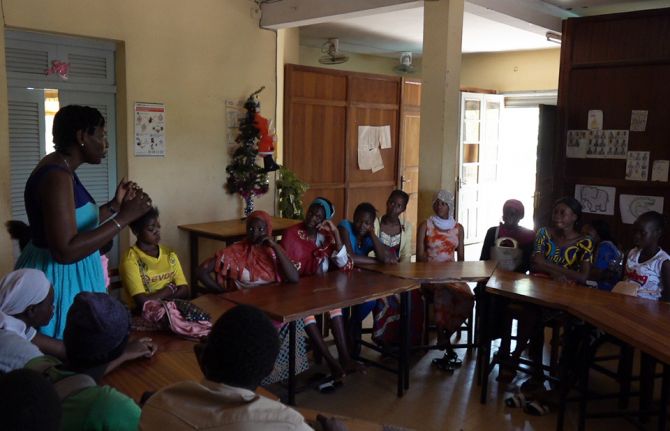
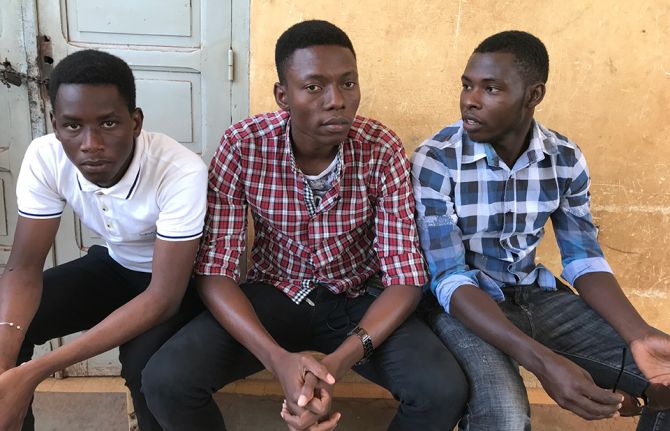
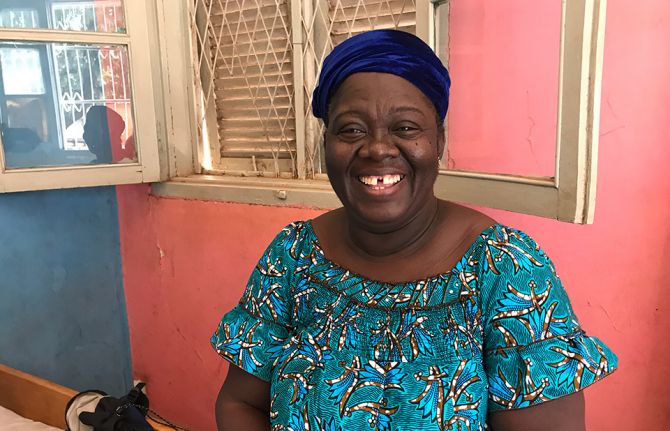
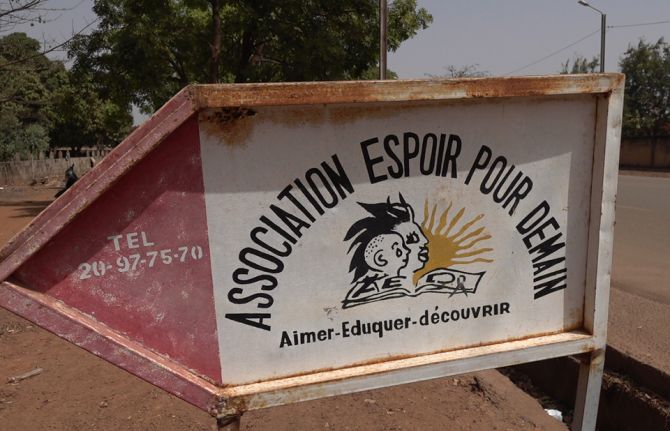
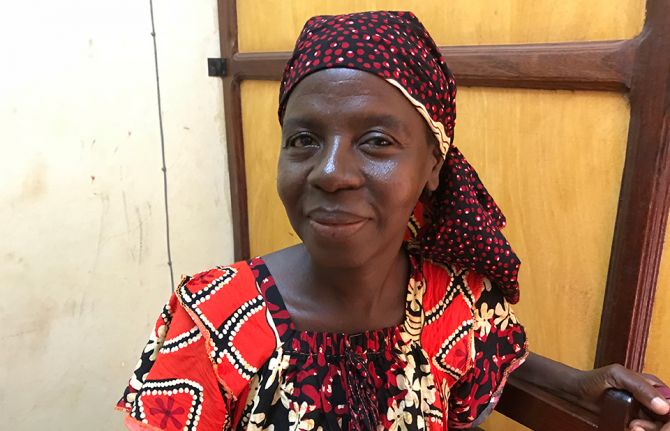
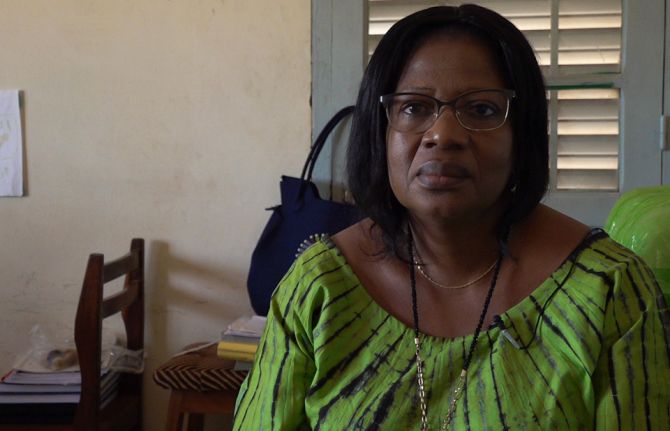
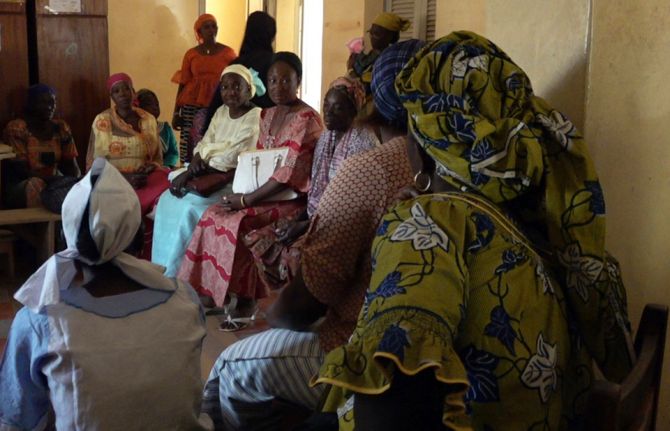
Feature Story
Helping the forgotten generation
02 April 2019
02 April 2019 02 April 2019Towering over a throng of young people, Christine Kafando peppers the crowd with questions.
“Do you feel pressure from other boys and girls?” “Do you feel abandoned because of poverty?” “Do you have all the information you need regarding your health and HIV? If not, ask me, ask your partners, ask! Okay!”
The 40 boys and girls nod and shrug. They have come for a workshop run by the Association Espoir pour Demain (AED) in Bobo-Dioulasso, Burkina Faso, which aims to create a space for young people to learn about sexual health and to train some to become peer educators.
“After having seen a number of young students come to us pregnant, we felt a need to start these workshops,” Ms Kafando, the founder of AED, said.
Issa Diarra said the workshop enabled a dialogue. “In our society, we really don’t talk that much about sex and, I would add, health issues, but here we really had the chance to discuss all that,” he said. Another attendee of the workshop, Roland Sanou, agreed, “Sex today remains taboo for young people, but I don’t want it to stay that way.”
Many of them say times have changed and that the way they think is different from the way their parents thought. “Currently, we young people are aware and we know what we want and we know that being sick can keep us from realizing our dreams, so that’s why we are rallying,” said Baba Coulibaly.
At the beginning, AED helped women living with HIV to access treatment. It then grew to help mothers and their babies born with HIV. Fifteen years later, many of those children are now teenagers and still drop by. Reflecting on her two decades as an HIV advocate, Ms Kafando said, “For so many years, women have been the face of HIV, but it’s key to include men and boys to raise their awareness.”
Jacinta Kienou, a nurse who has been at the association since it was founded, said that there were two big challenges: a number of young people living with HIV no longer take their treatment regularly and many young people are unsure about how to deal with relationships.
“Because they live with HIV, and they are young, lots of problems bubble up concerning affection and acceptance by others with regard to their HIV status,” she said. “Often relationships end because of someone’s HIV status. We council them and their parents at that time,” she added.
In Burkina Faso, young people make up more than 60% of the population and data show that many of them do not know their HIV status. UNAIDS Strategic Information Officer André Kaboré describes two gaps concerning young people. “Despite high-quality treatment being readily available, there are children out there who don’t know they’re living with HIV. Worse, many of those who do know that they are living with HIV aren’t accessing treatment,” he said.
In the country, 94 000 people are living with HIV, 9400 of whom are children under the age of 15 years. While 65% of adults living with HIV are on life-saving antiretroviral therapy, only 28% of children living with HIV whose status is known, about 3500, are on treatment. Ms Kafando calls them the forgotten generation. “They fell through the cracks because until now they had never been sick or needed attention and thus were never tested for HIV,” she said.
The head of the National AIDS Council for Bobo-Dioulasso and the surrounding region, Suzanne Sidibé, said, “We lost sight of children born with HIV. Our aim, with the help of the Association Espoir pour Demain, is to fan out to families through health mediators.”
Hoho Kambiré, who is living with HIV, has four children, two of whom are living with HIV. As an AED health mediator, she speaks about the benefits of knowing one’s status to all who will listen. She visits families, accompanies women to clinics and provides support.
“It is necessary to test all the children to know who is sick and who is not sick and follow up to keep them healthy,” she said. AED has now more than 50 health mediators, mostly women like Ms Kambiré, who originally came to the association seeking health services herself.
The United Nations Children’s Fund (UNICEF) and UNAIDS both support AED financially. Mireille Cissé, a UNICEF HIV specialist, said that the United Nations in Burkina Faso had identified the top priorities for the AIDS response in the country, including working with civil society.
“We agreed that a community link needed to be established, because they are our entry into families,” she said. UNICEF formalized the health mediators’ contribution by providing a stipend for their work and works hand in hand with the regional office of the Ministry of Health.
“A real victory for us was to have the health mediators integrated into the health teams of the districts,” Ms Cissé said. “That buy-in really facilitated the role of the health mediators and has raised their profile.”
UNAIDS has reinforced the capacity of the health mediators to widen their scope of work, which ranges from psychosocial counselling to training on treatment adherence. “To maintain our progress in the HIV response and end AIDS depends a lot on civil society like the Association Espoir pour Demain,” Job Sagbohan, UNAIDS Country Director, said. “We really hope for maximum impact.”



